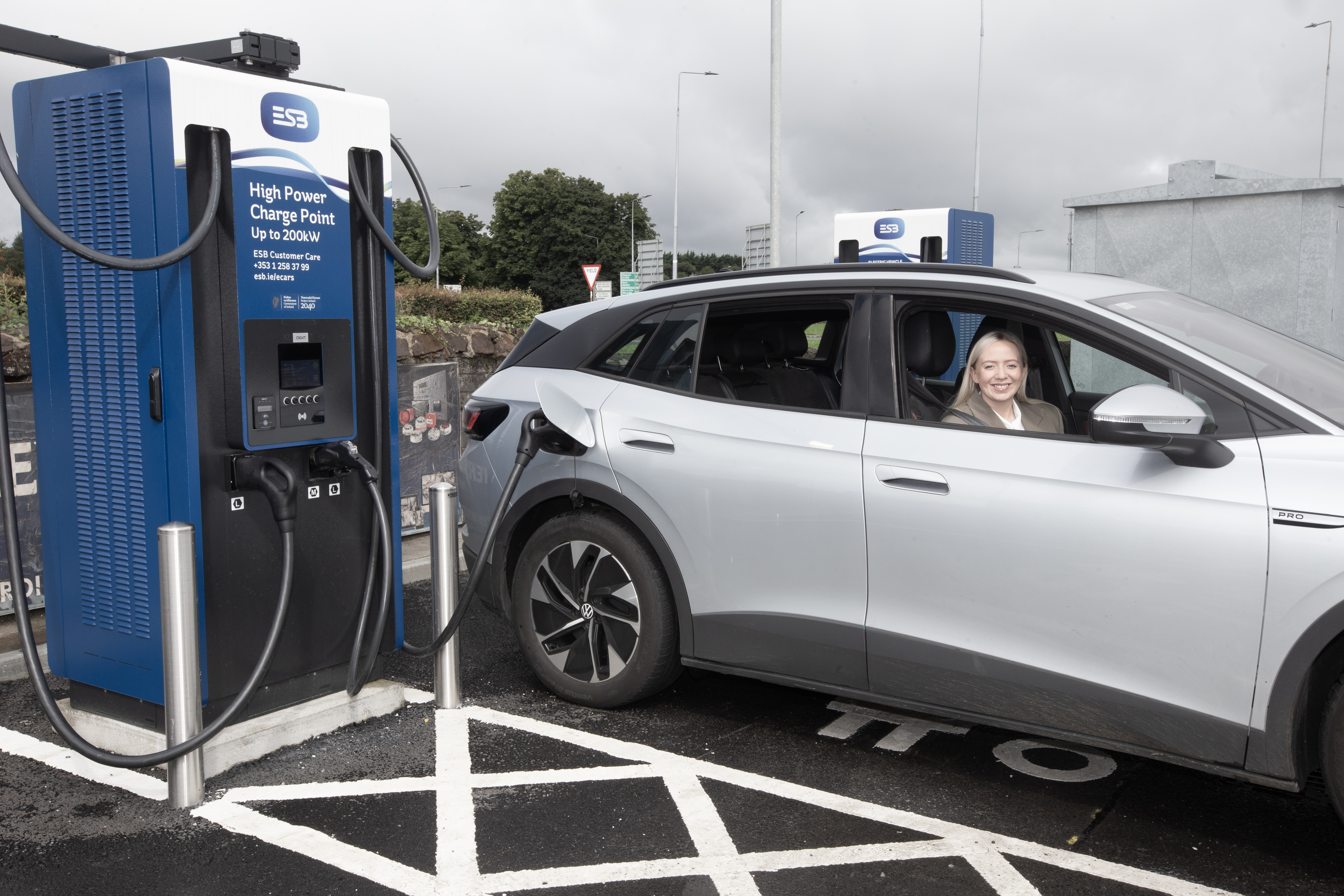Delivering on Ireland’s climate targets means fundamentally rethinking transport – and a top priority is encouraging drivers to make the switch from petrol to electric vehicles (EVs).
Since 2010, ESB – through its ecars team – has been helping enable this shift by building, operating and maintaining the first public network of EV charge points across the island. Now, it has reached a significant milestone with the completion of a project jointly financed with the Climate Action Fund which has seen an accelerated rollout of high power charging hubs and a range of other upgrades to infrastructure.
Meeting Climate Action Plans
The national Climate Action Plan had set an ambitious target for EVs: that 195,000 would be on the road before the close of 2025. Reaching this goal seemed like an impossible ask back when ESB began rolling out its charging network 15 years ago. Yet in October 2025, that milestone was passed and exceeded with the Government announcing that over 196,000 EVs are now driving on Ireland’s roads.
There are many reasons that ever more drivers are choosing to go electric, from wishing to reduce their carbon footprint to benefitting from the lower running costs that come with an EV. Another important factor is that the public charging infrastructure has significantly expanded in recent years, making charging on the go easier than ever.
ESB has played a big role in this transformation of the public charging landscape. The last six years have seen a rapid acceleration in the network buildout, the result of a joint investment programme between ESB and the Irish Government through the CAF – a fund launched in 2018 to give financial support to initiatives that will help Ireland achieve its climate and energy targets.
As Niamh Nicell, ESB Project Manager in the ecars Infrastructure Delivery Team explains: “We decided to apply for funding to support our ambitious goals to expand the network while strengthening the existing charging infrastructure.”
Charging Hubs
The result was an impressive build-out of charging hubs across the country. A total of 55 new hubs were installed during the project, each with the ability to charge between three and eight vehicles at the same time. Add to that a range of upgrades throughout the network: 100 of the standard AC charge points were upgraded to fast DC chargers, making for a more efficient and convenient experience for customers, while around 500 further charge points were fitted with the latest technology to make them more reliable.
“Over the past seven years, the team has worked tirelessly to make it happen – from the rigorous acquisition process once a potential site is identified, to the planning, design and install of the new chargers,” Nicell points out. She underlines that close collaboration with customers has been vital to the project’s success: “Listening to our customers has been essential at every stage of this project, so we can fully understand what they are looking for in a charging hub. And by building that confidence among drivers that they can access rapid charging for longer journeys, we can encourage greater EV uptake in future.”

Picture: Niamh Nicell, ESB Project Manager in the ecars Infrastructure Delivery Team, at the recently opened high-power charging hub in Collooney, Co. Sligo
€23 million investment in the network
In total the project represents a €23 million investment, with €10 million contributed by the CAF and €13 million by ESB. Already, customers are reaping the benefits: network availability has increased significantly – now reaching 99% – and EV drivers have more widespread access to high-power charging hubs, where in as little as ten minutes they can charge their vehicles to 220km of range. Feedback from customers has shown that 86% of those surveyed recognised enhanced network reliability even before the programme concluded.
The CAF project may be completed, but our mission to help drivers go electric continues, as Nicell sums up: “We remain focused on rolling out more high-power hubs across the island of Ireland, helping drivers along on their journey to e-mobility.”
